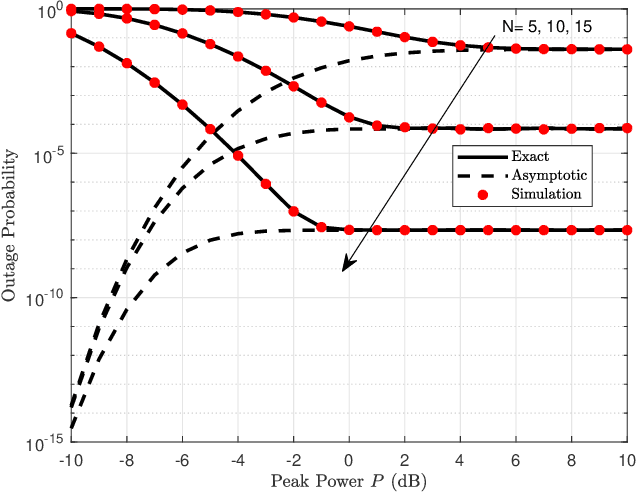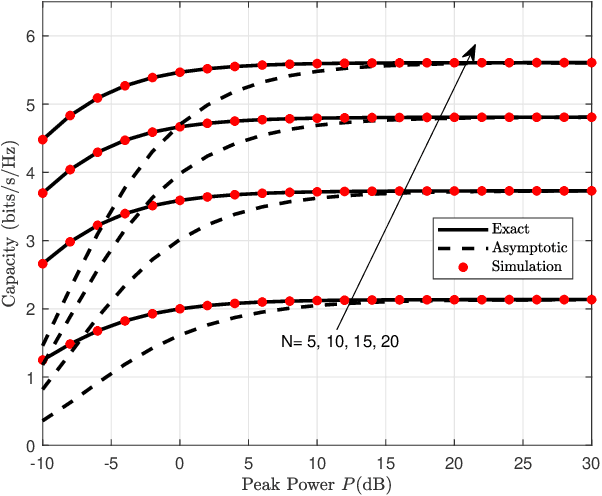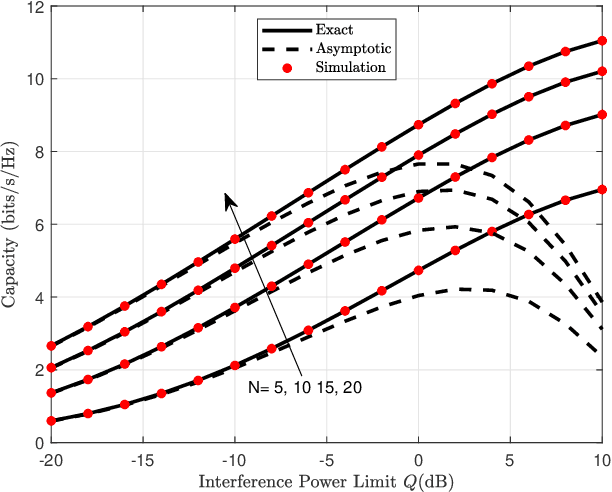Performance Analysis of RIS-Assisted Spectrum Sharing Systems
Paper and Code
Apr 21, 2024



We propose a reconfigurable intelligent surface (RIS)-assisted underlay spectrum sharing system, in which a RIS-assisted secondary network shares the spectrum licensed for a primary network. The secondary network consists of a secondary source (SS), an RIS, and a secondary destination (SD), operating in a Rician fading environment. We study the performance of the secondary network while considering a peak power constraint at the SS and an interference power constraint at the primary receiver (PR). Initially, we characterize the statistics of the signal-to-noise ratio (SNR) of the RIS-assisted secondary network by deriving novel analytical expressions for the cumulative distribution function (CDF) and probability density function (PDF) in terms of the incomplete H-function. Building upon the SNR statistics, we analyze the outage probability, ergodic capacity, and average bit error rate, subsequently deriving novel exact expressions for these performance measures. Furthermore, we obtain novel asymptotic expressions for the performance measures of interest when the peak power of the SS is high. Finally, we conduct exhaustive Monte-Carlo simulations to confirm the correctness of our theoretical analysis.
 Add to Chrome
Add to Chrome Add to Firefox
Add to Firefox Add to Edge
Add to Edge